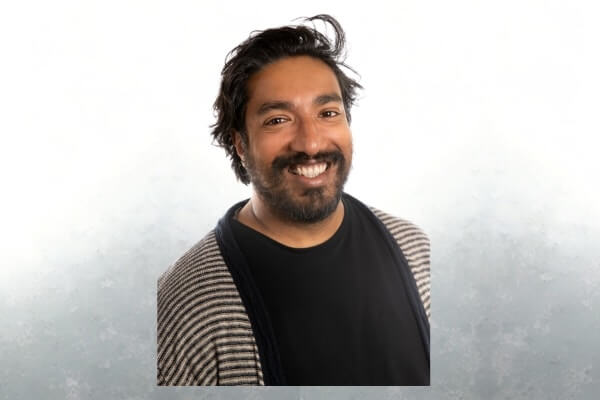SHANKAR KASYNATHAN is a movement builder advocating for human rights and migrant and refugee communities, who has worked with Amnesty International, Oxfam, Red Cross and VicHealth and has just finished his tenure as a Victorian Multicultural Commissioner. He is currently the leader of Federation University’s ‘Roads to Reconciliation’ project as an Adjunct Senior Research Fellow at their National Centre for Reconciliation, Truth, and Justice.
Lakshmi Ganapathy: You’ve been an advocate for over 20 years, and in some major roles across major advocacy organisations. With all your experience, what would you say it takes to achieve change?
Shankar Kasynathan: Change requires enormous amounts of passion, patience, and participation – the three Ps. It’s about taking people along with you and trying to include them in the conversation; this will take time and be uncomfortable. The referendum is a great example – it was a short time frame to engage what is in many parts of Australia a largely disengaged population with meaningful and authentic reconciliation. We have a variety of people [in Australia], from those who don’t know anything about our country’s history to people passionately pushing the Yes or No campaigns, but I think if we’re serious about reconciliation in a sustained way, it requires us to take people on a journey.
Lakshmi Ganapathy: Your ‘Roads to Reconciliation’ project focuses on Indigenous reconciliation within multicultural communities. Following on from what you mentioned about disengagement, why is it that a lot of multicultural Australians are reluctant to or don’t engage with Australia’s history?
Shankar Kasynathan: For many new arrivals, they find themselves facing a myriad of challenges like access to housing, employment and healthcare, and their attention span is influenced by those survival needs. Beyond that, we’ve also not had many meaningful opportunities to explore Indigenous dispossession and injustice, as the truth telling process has often not involved migrant and refugee communities.
I think there’s a great opportunity to link multicultural communities here; ‘Roads to Reconciliation’ looks at how we can learn from Indigenous resilience and survival as we advocate for ourselves, rather than looking at them as a people we should feel sorry for. As Lilla Watson (Gangulu woman, activist, and visual artist) says:
“If you have come here to help me, you are wasting your time. But if you have come because your liberation is bound up with mine, then let us work together.”
Lakshmi Ganapathy: How can we be better advocates for what we’re passionate about?
Shankar Kasynathan: I think about this all the time! There are three things; firstly checking our own privilege and bias is important. Our communities aren’t homogenous, and there’s power differentials in the spaces that we navigate, so for those who are leading, we should ask ourselves honestly what we know and get educated.
The second is burnout, and learning how to lean into advocacy in a way that you can look after yourself and sustain your journey when you’ve got responsibilities.
Finally, the third is being authentic about what it is you’re passionate about. For many years I was a refugee advocate, and will always be one, but I ask myself: am I the best person to be doing this? Though my life has been shaped by resettlement, it’s now been over 30 years since I arrived and there are others with fresher experiences and insights that could offer more to a campaign; that’s why I left Amnesty after four years.
Lakshmi Ganapathy: What’s something that you’re currently listening to/reading/playing/watching?
Shankar Kasynathan: I had the privilege of meeting one of my literary heroes, Christos Tsiolkas and I’m re-reading his book Loaded, about the challenges of a young [gay] Greek man growing up in Melbourne. I’ve always found comfort in this book, but I’m also really challenged by the fact many of my peers who privately identify as LGBTQI don’t feel that the ecosystem of our communities and the spaces in our neighbourhoods are safe enough for them to come out and be their full selves.
Lakshmi Ganapathy: What’s a word that you like in a South Asian language, and what does it mean?
Shankar Kasynathan: Arokkiyam (ஆரோக்கியம்) is a Tamil expression for wellbeing, which firstly just sounds cool! But I also resonate with it because of the work I’ve done around building wellbeing literacy and spaces; there’s a mental health crisis for Tamil asylum seekers in Australia so this word speaks to the hope we can find different journeys towards wellbeing.
Lakshmi Ganapathy: And finally – Soan Papdi or Papdi Chaat?
Shankar Kasynathan: Papdi Chaat. I don’t think I’ve tasted either but that one sounds like it’d be delicious.
READ ALSO: Cutting Chai with Urvi Majumdar





